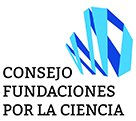Director: Miguel A. Hernán
Professor, Departments of Epidemiology and Biostatistics, Harvard School of Public Health. Boston, USA
Date: September, 22-25, 2014
Place: Llatzeret de Maó. Escuela de Salud Pública de Menorca. Spain
Organisers: Escuela de Salud Pública de Menorca (EMSP) and Universidad Internacional Menéndez Pelayo (UIMP)
Sponsors: UIMP and the Esteve Foundation
Brief description of objectives and contents of the course:
Causal inference from observational data is a key task of epidemiology and of allied sciences such as sociology, education, behavioral sciences, demography, economics, health services research, etc. These disciplines share a methodological framework for causal inference that has been developed over the last decades.
This course presents this unifying causal theory and shows how epidemiologic concepts and methods can be understood within this general framework. The course emphasizes graphs and conceptualization in simple settings but also introduces statistical methods for time-varying exposures. Specifically, this course strives to a) formally define causal concepts such as causal effect and confounding, b) identify the conditions required to estimate causal effects, and c) use analytical methods that, under those conditions, provide estimates that can be endowed with a causal interpretation.
Student profile:
Students researchers and professionals from health, behavioral and social sciences. Participants are expected to be familiar with basic concepts in probability theory, and to have a working knowledge of standard statistical methods used in epidemiology.

